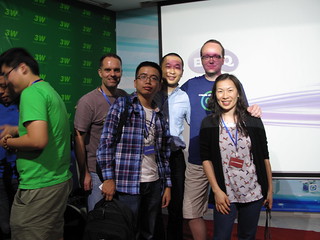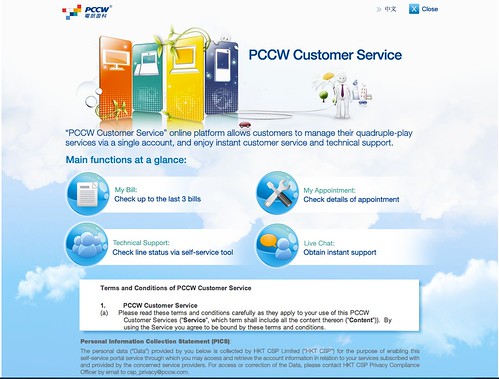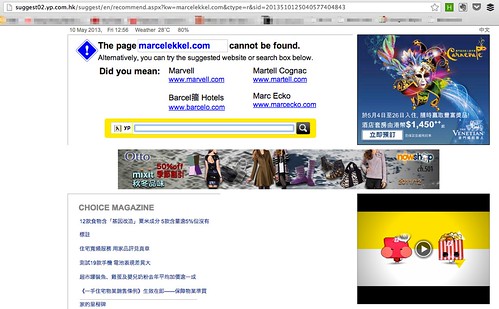From 10-12 May 2013 the 5th Edition of
Startup Weekend took place in Shenzhen, China. The venue was
3W Coffee (which has a famous sibling in Beijing), a hotspot for internet entrepreneurial activities in the High Tech district of Shenzhen. In the neighbourhood you can find companies like Tencent, Microsoft and IBM. So when talking to
+Michael Michelini if I was available for some mentoring the answer was obviously yes!
On Sunday myself and @SiuShanLau were available to help out on mentoring the participating teams. Where @SiuShanLau her focus would be on design and UX, and mine more on business model and execution. Something I do enjoy and find interesting and very useful as well as you always learn something new. After a smooth ride from Hong Kong, we arrived less than an hour later on site. Teams were still dripping in to get started. As it was the last day, some wear and tear could be seen on faces :).
After sort of being checked in, we did a quick round to meet the teams and find out what support was needed where. Well, with 21 teams that took a fair bit of time indeed. So, trying not to get stuck at teams we managed to do a decent round and I found a few teams I could wanted to sit down with.
Below a short write up of some of the teams.
GoGoGrad: A small 2 man team (well, when I met them) that are putting a solution in place to help parents and potential students to manage the workflow of signing up for US Universities. A cumbersome process with lots of activities and deliverables. A few key pain points they dealt with are reminders on the different deadlines, pointers on what should be provided for each university as well as help towards support on pre-submission tests etc. They had a good problem description and through some validation with potential clients were able to refine it even more. This helped them to get even better. Their original idea covered an app, though after a little more discussion we suggested that a website would be helpful to support the documentation. I don't see people easily editing and uploading required documents from their mobile phones.
Coop Delivery: The team was very international with people from Europe, China and a Middle Eastern teamleader. A cool concept where neigbourhood stores are used to receive packages. For example if you order something through AMAZON.COM or TaoBao and you are working during the day...then there is an issue. Often packages need to be signed for or just someone needs to be present to receive it as it just won't fit in a letterbox. Your local grocery could make themselves available to receive and store your package. The original receiver should pick it up within 48hrs or else they would be charged an additional fee. Other than a few operational things they had worked out their business model quite nicely. And...they did a really good job on the customer and supplier validation. My question mark was and is whether the volume is big enough to support the low fees they were charging for the service.
Curious if they will continue.....
Dating (not the real team name)
Another dating site.. although they had a little different take. The site would be free as it would be providing some initial matching/introductions only. The model was around organising real life events, or meetings at real life events so people could meet in a more relaxed environment to be themselves. Events would be the binding element and could vary from sports matches, theatre visits or even playing mahjong I guess. Spend a little time here on their service offering and business model development.
PlugMeIn: A little more focussed on the tech and development community. The quality levels for open source software varies, and sometimes you might be looking for something good. Though, getting it updated might get a bit costly. This team worked on solving that. Bringing people together to put down some money to find a developer to fix or develop what is needed. They did go out and did some nice customer development work as well. They would be taking a small % as commission from the transaction fees. Not sure if and what sort of competition there is already in the market on this one. Though the way they were working on it looked good. A bit of more design input would be beneficial for the guys. They did start off as a group buying site for plugins etc for websites.
EDZ Marketing: A business to business solution. This team is fixing the issue of the lack of access to good quality information with regards to the ability to invest in Economic Development zones in China. The service offering would cover an online and offline part. Where the online part is about information, and the offline part about introducing the right partners to each other.
Although less sexy and definitely not your standard app, they had done good validation with their stakeholders and a solid business model as well.
ChooseOne: This team worked on an app that could help you in making a decision on what to buy. For example you see 2 dresses, take a pic of both and get people to vote on which one would be the better option. Funnily enough I worked with a team on a similar idea during the last
Hong Kong Startup weekend edition. They arrived there after a few pivots. Supported the guys on some options for their business model here.
The rest
Obviously there were many more teams, though the ones above are the ones I did spend a little more time with.
At the end of startup weekends, there is always a 5 minute pitch and a couple of minutes for the 5 headed judge team to ask questions. The judging panel included
+Paul Orlando as well, the only Laowai/Gwailo though...fluent in Mandarin & Cantonese which was needed as that was the language of communication for most teams.
After a full on 3hours of presentations, the judges left the stage to deliberate on the winner. Unlike many other StartupWeekends, the choice was made to go for a 3rd, 2nd and 1st place rather than different categories.
The final winner was Go Go Grad! Congrats and well done guys!

Above the winning team posing with
+Siu Shan Lau +Jeffrey Broer and
+Marcel Ekkel. The interesting bit is, that they did
NOT have a working application. They
DID have a validated business model though!
So in general some of the key take aways are:
- Define the problem you are working on well enough so that the team understands it, and define the underlying assumptions.
- Go out and test those assumptions!
- Define and check your customer segment
- Gather information on the way your customer would like to have their problem solved, and validate this
- Check the value it has for them so you can come to some sort of revenue model (including market size!)
- And validate this...
The above is written on a very high level, though the core message is define, go out and validate it and adapt where needed. Yes, this is a lot of work, it requires customer contact though will help you to do and deliver stuff that your customers want. And if they don't want or need it well you can stop on time to prevent wasting it..... Oh and have you noticed...no word of technology yet here. It does play a role, but if you haven't figured out the problem you are going to solve....then tech talk is a waste of time.
And of course, figure out what sort of resources you need to make this happen. Resources like people on the team but also on the board and as advisors.



